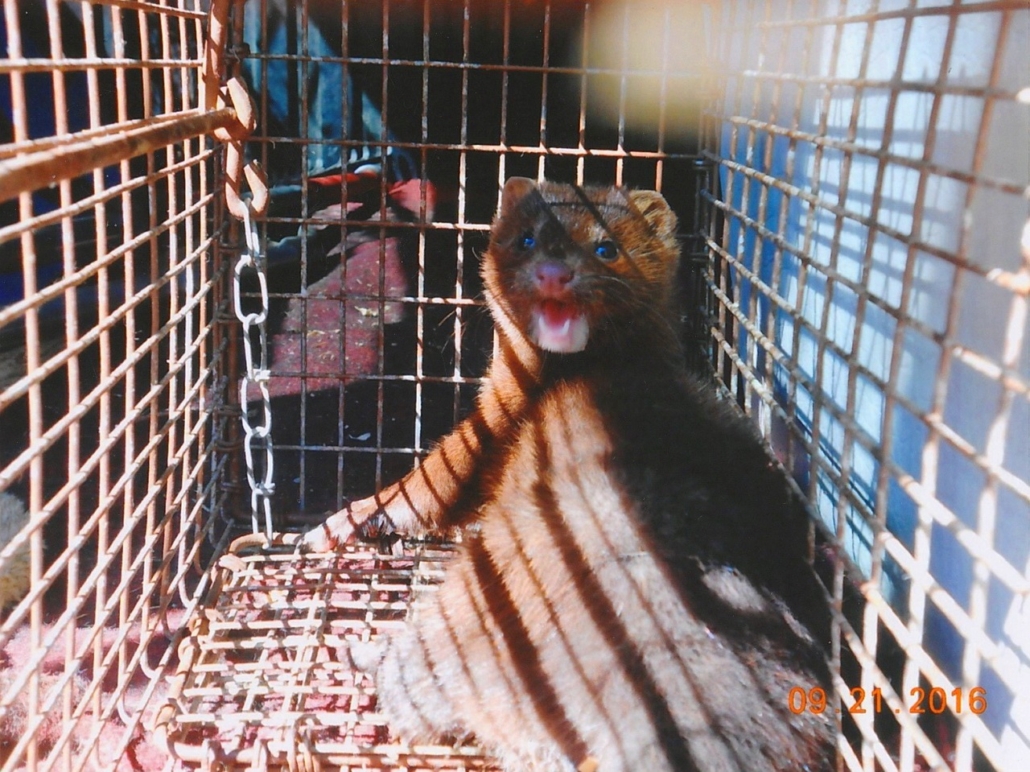CRITTER CHATTER: The difference between animal control officer, and animal damage control officer
 by Jayne Winters
by Jayne Winters
When Don and I talked about a topic for this month’s column, he suggested letting readers know what the differences are between an Animal Control Officer (ACO) and an Animal Damages Control Agent (ADC). Although the titles of “Animal Control” and “Animal Damage Control” are often used interchangeably, they represent two different areas of specialty. Simply put, Maine Animal Control Officers handle domestic animal complaints, while Animal Damage Control Agents deal with wildlife issues. Both must be licensed or certified by the overseeing state agency and successfully complete continuing education or training; both are required to have a current Maine trapping license.
Animal Control Officers are licensed and regulated by the Dept. of Agriculture, Conservation & Forestry under its Animal Welfare Program. According to semi-retired ACO Patrick Faucher, of Oakland, municipalities are mandated by the state to have Animal Control Officers, but due to limited budgets, often hire and share an officer to cover several towns in the area.
According to the National Animal Control Association (NACA), Animal Control Officers “work to maintain public health standards by making communities safe for both people and animals.” Most entry-level ACO positions require a minimum of a high school diploma, but agencies often require additional training and education related to animal or veterinary sciences, and/or law enforcement. Typical duties include investigation of complaints; working with the public, animal shelters, and potentially dangerous animals; maintaining records and preparing incident reports; monitoring dog licensure; capturing and possibly quarantining loose or stray animals; issuing warnings or citations to pet owners for appearance in court; and trapping/rescuing/transporting injured or sick animals. They also need to know the appropriate, safe practices and use of various equipment used in animal handling. In addition to having the physical abilities required to perform field work, they also need a valid driver’s license and must be certified as an ACO at the time of hire or within six months. Maine ACOs must fulfill mandated 8-hour training requirements annually; failure to do so results in Phase I (core competencies) and Phase II (practical instruction and exercises) recertification. Many training options are currently provided on-line due to Covid-19 restrictions until regular in-person training can be safely held.
Conversely, Animal Damage Control Agents are licensed and regulated by the Dept. of Inland Fisheries & Wildlife, but operate as independent contractors. Pat Faucher noted that because the state has no standard or base fees, agents can charge whatever they want, often for each animal captured. Common nuisance species include raccoons, skunks, squirrels, mice, opossums, or weasels seeking shelter in or under a house, garage, or shed. They may occupy an area sporadically, using the site for a few days until food sources are exhausted, or to give birth and raise their young. If an animal doesn’t pose a problem to you, your family, pets or other animals, you may choose not to have it removed. However, sometimes animals make noise, chew or destroy property, create odors or present a potential health hazard. Pat Faucher told me that if there is a health hazard, the town is required to respond. Due to liability issues concerning health or safety hazards, such as a potentially rabid animal or relocating a mother animal and her young, an Animal Damage Control Agent should be utilized.
Pat stated trapping is not as simple as the general public may think: wild critters, especially raccoons and squirrels, are very smart. The individual trapping must have knowledge of what type of bait to use, where and how to place it, e.g., loose or wired to the cage. Agents do not handle domestic animal calls unless they are also a licensed ACO for a given town. Some Agents specialize in certain species, such as beavers or bats, so be sure you choose a person with the right expertise. If you have questions, you should contact your town or the local wildlife biologist, game warden or rehabber. State wildlife offices do not really have the staff resources to provide animal removal services, but can provide the names of individuals and companies that do.
As noted in April, Donald and Amy are recovering from recent health issues, so the Care Center is receiving assistance from other rehabbers to help with spring admissions. We ask that you check these websites to see if there is a rehabber closer to you to help make critter care at Duck Pond more manageable: https://www.mainevetmed.org/wildlife-rehabilitation or https://www.maine.gov/ifw/fish-wildlife/wildlife/living-with-wildlife/orphaned-injured-wildlife/rehabilitation.html. Thank you.
Donald Cote operates Duck Pond Wildlife Care Center on Rte. 3 in Vassalboro. It is a non-profit state permitted rehab facility & is supported by his own resources and outside donations. Mailing address: 1787 North Belfast Ave., Vassalboro ME 04989 TEL: (207) 445-4326. EMAIL: thewildlifecarecenter@gmail.com.
Responsible journalism is hard work!
It is also expensive!
If you enjoy reading The Town Line and the good news we bring you each week, would you consider a donation to help us continue the work we’re doing?
The Town Line is a 501(c)(3) nonprofit private foundation, and all donations are tax deductible under the Internal Revenue Service code.
To help, please visit our online donation page or mail a check payable to The Town Line, PO Box 89, South China, ME 04358. Your contribution is appreciated!



Leave a Reply
Want to join the discussion?Feel free to contribute!